Space
Sign up for our newsletter
We summarize the week's scientific breakthroughs every Thursday.
-
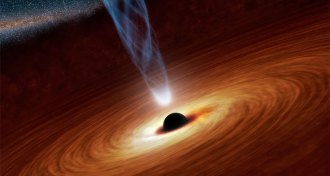 Astronomy
Astronomy‘Black Hole’ traces 100 years of a transformative idea
Implied by general relativity and proven by astronomical discoveries, black holes’ existence took decades for physicists to accept.
-
 Astronomy
AstronomyWandering planets, the smell of rain and more reader feedback
Readers consider how hard it would be to fashion Paleolithic tools, discuss what to call free-floating worlds and more.
-
 Planetary Science
Planetary ScienceHow did Earth get its water?
Earth is a wet planet that formed in a dry part of the solar system. How our planet’s water arrived may be a story of big, bullying planets and ice-filled asteroids.
-
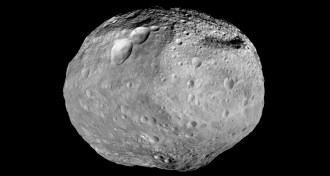 Planetary Science
Planetary ScienceExplore an asteroid with ‘Vesta Trek’
Vesta Trek lets users explore the asteroid Vesta with data from the Dawn spacecraft.
-
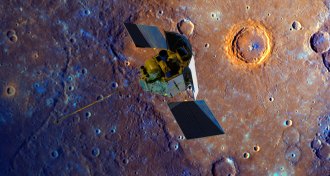 Planetary Science
Planetary ScienceMESSENGER mission ends with crash landing on Mercury
The MESSENGER mission to Mercury came to a spectacular end as the probe crashed into the planet’s surface.
-
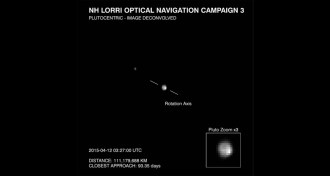 Planetary Science
Planetary SciencePluto’s landscapes come into view as New Horizons closes in
The New Horizons spacecraft sees surface markings and a possible polar cap on Pluto as it closes in for a July encounter.
-
 Astronomy
AstronomyTiny explosions add up to heat corona
Millions of mini-explosions every second on the sun could solve the riddle of why the sun’s atmosphere is so much warmer than its surface.
-
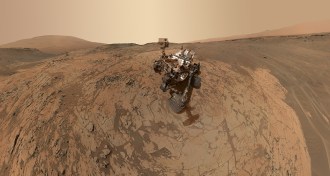 Planetary Science
Planetary ScienceThe Martian Diaries
Curiosity has explored Mars for over two and a half years. What if NASA's rover kept a scrapbook?
-
 Astronomy
AstronomyLit-up gas clouds hint at galaxies’ violent pasts
Voorwerpjes, tendrils of gas that orbit galaxies, continue to glow tens of thousands of years after being blasted with ultraviolet radiation.
-
 Astronomy
AstronomyAstronomers celebrating Hubble’s past focus on its future
Astronomers celebrate the 25th anniversary of the Hubble Space Telescope by reflecting on its diversity and looking ahead to the future.
-
 Astronomy
AstronomyCosmic threesomes make some galaxies run away
Extremely rare, free-floating galaxies called compact ellipticals may have been ejected from their home clusters after a massive intergalactic meet-up.
-
 Space
SpaceDriving Curiosity to discovery
Discovery is driven by curiosity, on Mars and closer to home.
By Eva Emerson